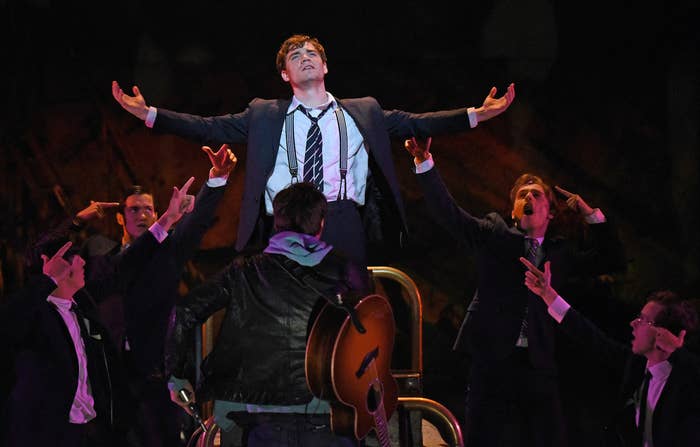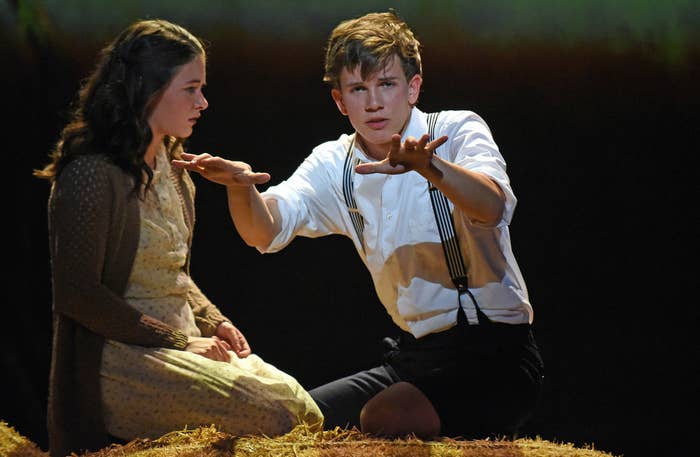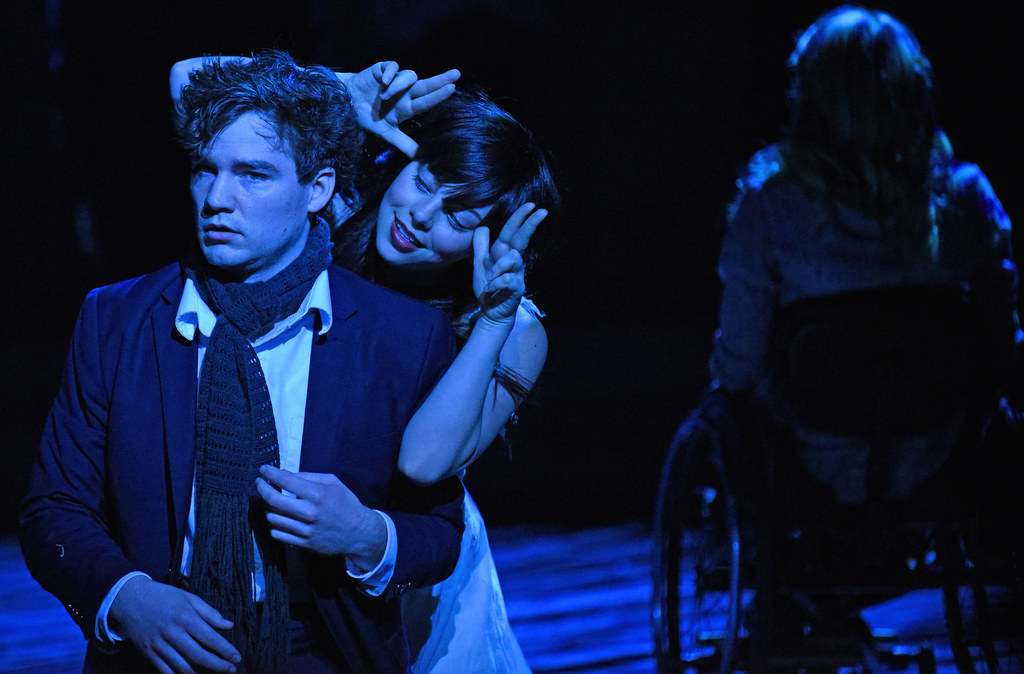
When Spring Awakening debuted in 2006, it stunned theatergoers with its staggeringly true-to-life portrayal of adolescence and sexual discovery. The rock musical, adapted by book writer and lyricist Steven Sater and composer Duncan Sheik from Frank Wedekind's controversial 1891 play, focuses largely on the unanswered questions that plague young people — and their parents' refusal to even address them.
In Deaf West's production of Spring Awakening, currently running at the Wallis Annenberg Center for the Performing Arts in Beverly Hills, the theme of fraught communication is clearer than ever before. The cast is a mix of deaf and hearing actors, and the dialogue and songs have all been translated into American Sign Language. Some characters communicate via signing easily back and forth, while others struggle to understand one another.
"The show itself is about communication," DJ Kurs, the artistic director of Deaf West, told BuzzFeed News through an ASL interpreter. "It's also about the division between children and their parents, and deaf people — many are born to hearing parents, so we have parents who speak a different language and don't understand our culture. That is what you will see in Spring Awakening: the relationships between children and their parents, and how the kids have to navigate through the world on their own, and that itself is a very common experience in the deaf world."
In previous Deaf West productions, the shows have been deaf accessible but have not incorporated the actors' deafness into the story. For Spring Awakening, the characters played by deaf actors have been reconceived by director Michael Arden as deaf roles. "We want to choose a meaningful show and shows that in and of themselves add value and become better by adding sign language instead of just doing the same thing in sign language," Kurs said.

And Deaf West's Spring Awakening is just that. The production premiered last fall at the 99-seat Rosenthal Theater in downtown Los Angeles. Now that it's at the Wallis, the show has been expanded for a larger audience. Some of the cast has stayed with the production, like deaf actors Daniel Durant (as Moritz, who feels anxiety over his burgeoning sexuality) and Sandra Mae Frank (as Wendla, who naively enters a sexual relationship she doesn't understand).
Both actors mentioned how difficult it is to find work as deaf performers: Deaf characters are few and far between and on top of that, they are often played by hearing actors. When it comes to hearing roles, deaf actors are rarely considered.
"It's tough," Durant said via an interpreter. "There are millions of people looking for acting roles and a lot of deaf people, and there just aren't that many roles out there. Often there will be roles thought of as being for hearing actors, but I'll audition anyway and give people an opportunity to think, Maybe this will work for a deaf person. But it's not an easy life."
If a casting director does choose to take that chance on a deaf actor, they open the door for a unique experience. "Deaf people present more layers, more layers of conflict, especially if there's a communication breakdown," Frank said, also via an interpreter. "Not to be bigheaded or anything, [but] I feel like I have so much to give to this role."
The characters' deafness plays out in the interactions they have with the hearing characters in Spring Awakening, many of whom are slow or outright resistant to communicating with ASL. "We've translated Wendla's mother's dialogue really specifically so that you understand that she is a hearing woman that has learned to sign late in life to be able to communicate with her daughter," Andy Mientus, a hearing actor in the production, explained. "It's a little bit condescending, it's a little crude, it's a little like English as sign instead of full ASL. They're really rudimentary signs."
It hits close to home for Kurs, who is too often seeing hearing actors play deaf characters. "[ASL] is our first language. If you put a hearing person and you teach them sign language — you could teach them for five years straight and they're still not going to be equivalent to a deaf actor signing in their own native language," he said. "And when you have a deaf actor, it looks really natural and very, very rich, and it brings all the different layers to the role."

Most of the hearing actors in the cast did not know sign language before getting their roles. And while they theoretically only need to learn how to sign their parts, many of the actors have become conversational in ASL in order to communicate with their cast mates. In part, it's a matter of practicality, but being in a Deaf West production also gives the hearing actors a new perspective on their privilege and the realities of life for a deaf person.
"For the first time ever, you're thrown into their world where you're the one trying to keep up and missing things and feeling confused and feeling isolated," Meintus said. "And you realize that's what it's like for most deaf people a lot of the time in our hearing society. Being tossed into this community with only the very basics of communication, that was really humbling and eye-opening."
It's just one of the ways Spring Awakening speaks to the broader goals of Deaf West. "We really believe in bringing together spoken language and sign language and creating different opportunities for people creatively to improve their skills and expand their perspectives, and the growth of the material also," Kurs said. "Sometimes an old play that no one does anymore, we can revive it and people go, 'Oh god, now I see what was so great about it in the first place.'"
